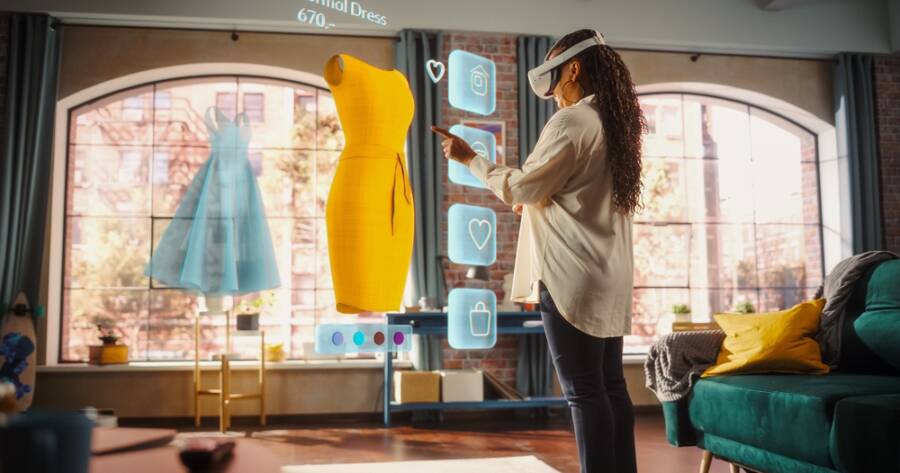In our rapidly evolving digital world, technology trends are continually reshaping the way we approach daily life. From smart devices and artificial intelligence (AI) to virtual reality (VR) and the Internet of Things (IoT), these innovations create new opportunities and efficiencies. Understanding how these technologies integrate into everyday activities reveals their potential to enhance productivity, connectivity, and convenience. Embracing these trends allows individuals to navigate a more dynamic and connected future with confidence and curiosity.
Smart Homes and IoT Integration
The Internet of Things (IoT) is transforming homes into intelligent living spaces by connecting appliances, lighting, security systems, and more through a centralized network. Smart home devices, like thermostats and voice-activated assistants, allow for seamless control and automation of daily tasks. By learning user habits, these systems adapt to individual preferences, optimizing energy usage and enhancing comfort.
Integration with smartphones and tablets extends control outside the home, offering remote access and monitoring. This connectivity not only saves time but also contributes to sustainable living by reducing energy consumption. Connecting homes reflects a broader trend toward an interconnected lifestyle, fostering efficiency and convenience.
AI in Personal Productivity
Artificial intelligence is enhancing personal productivity by offering tailored solutions to time management and task completion. Tools like AI-driven scheduling apps and virtual assistants streamline workload management by providing reminders, prioritizing tasks, and suggesting optimized schedules. These applications adapt to personal habits, offering a customized approach to productivity.
AI-based analytics provide insights into workflow patterns, fostering continuous improvement. Automated email sorting, intelligent filing systems, and predictive text functionalities minimize repetitive tasks, freeing users to focus on more complex and creative endeavors. By embracing AI, individuals enhance their ability to manage daily responsibilities with greater efficiency and effectiveness.
Virtual Reality and Augmented Reality Experiences
Virtual reality (VR) and augmented reality (AR) are revolutionizing entertainment, education, and even social interactions. VR headsets transport users to immersive worlds, offering experiences that range from gaming to virtual travel. Meanwhile, AR overlays digital information onto real-world environments, enriching experiences in fields like retail and training.
These technologies foster creativity, exploration, and engagement, making both learning and leisure more interactive. Through applications like virtual tours or collaborative art projects, users experience enhanced connection and understanding. These advancements represent the limitless potential for innovation, offering new pathways for discovery and interaction.
Wearable Technology: Health and Wellness
Wearable devices are playing a transformative role in health and wellness, providing personalized tracking and insights into physical well-being. Fitness trackers monitor activity levels, sleep patterns, and heart rates, offering feedback and motivation for healthier living. Apps connected to wearables can suggest improvements, establishing a proactive approach to health management.
Smartwatches extend functionality to daily tasks, integrating communication, navigation, and alert features. By fostering awareness and engagement, wearables encourage individuals to take control of health goals, promoting an active lifestyle. These tools make wellness an integral part of everyday life, aligning with the trend toward personalized, data-driven health.
Remote Work Technologies
The shift toward remote work has accelerated the development and adoption of technologies that support collaboration and productivity from anywhere. Video conferencing platforms, cloud storage, and project management tools enable teams to connect and collaborate seamlessly, regardless of physical location.
With flexible working environments, businesses and employees benefit from increased adaptability and efficiency. AI-driven tools aid in communication and task management, ensuring that remote work remains productive and engaging. The acceptance of remote work technologies reflects changing attitudes toward work-life balance, promising a future where geographical boundaries no longer restrict potential.
E-commerce and Digital Shopping Innovations
E-commerce continues to redefine retail by offering consumers unparalleled convenience and variety. Technologies like AI-driven recommendation engines and chatbots enhance the shopping experience by offering personalized assistance and tailored product suggestions. Augmented reality allows virtual try-ons, providing confidence in purchasing decisions.
Frictionless payment solutions, including digital wallets and contactless options, streamline transactions, enhancing user satisfaction. The increasing integration of e-commerce into daily routines reflects broader consumer expectations for convenience, personalization, and efficiency in shopping experiences. These innovations support a dynamic retail landscape, rich with opportunities for both buyers and sellers.
Social Media and Virtual Communities
Social media platforms foster connection and engagement through features that go beyond simple content sharing. Tools for creating polls, hosting live events, or collaborating on creative projects enhance interaction within virtual communities. These platforms facilitate networking, learning, and collaboration, building bridges among diverse groups.
AI-driven algorithms tailor content to individual interests, enhancing user experience and encouraging deeper engagement. Virtual communities connect like-minded individuals, cultivating environments for growth and exploration. Through these digital dynamics, social media nurtures collaboration, creativity, and community in ways previously unimaginable.
Learn More Today!
The rapidly evolving technology landscape continues to shape daily routines, offering tools that enhance productivity, connectivity, and convenience. From smart homes and AI in productivity to VR experiences and remote work technologies, these trends reflect the dynamic nature of modern life.
By embracing and exploring these innovations, individuals and communities can harness technology to enrich their experiences and navigate a more connected world. This transformative potential promises a future filled with creativity, engagement, and endless possibilities.

